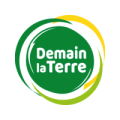Questions fréquemment posées
Accueil › Community of consumers › FAQ
Demain la Terre falls in line with a sustainable form of agriculture, whereby producers work towards environmental, economic, social and societal responsibility - based on the three pillars of sustainable development. Our Frame of Reference, allowing for certification, covers all three pillars through 10 themes and 70 requirements, setting obligations of means and results. Its content can be discovered here: https://demainlaterre.org/en/producer-community/demain-la-terre-label/.
Certification specifications for organic farming require the mandatory use of inputs and fertilisers used in organic agriculture (obligation of means). The other themes would not be mandatory for certified producers.
Both approaches are not incompatible. Indeed, some of our producers have both certifications, because in their opinion “growing organic is simply not enough”.
The criteria pertaining to the Demain la Terre label (about 70 in total) were all defined with certain obligations of means and results in mind. What is the difference? An obligation of means requires for certain actions to be implemented, and an obligation of results requires for a target number to be met based on tracking indicators. In more concrete terms, eliminating chemical pesticides is an obligation of means, regardless of the result on the fruit or vegetable in question; the lack of pesticide residues on fruit or vegetables is an obligation of result, regardless of the means used to achieve it.
Demain la Terre products can be found in all kinds of distribution circuits (supermarkets, specialised shops, greengrocer’s, catering).
As regards supermarkets, they can be found in a variety of shops: Aldi, Auchan, Carrefour, Casino, Frais d’Ici, Franprix, Intermarché, Leclerc, Lidl, Metro, Monoprix, U, etc.
Not all products are available in all shops at any time of the year, because of seasonality. Look out for the Demain la Terre logo on our products!
No! It is a comprehensive label, that encompasses a wide array of topics pertaining to sustainable development - as opposed to other labels that only deal with selected, isolated subjects. It has become THE go-to certification label in terms of sustainable development for French fruit and vegetables. It has existed for over 10 years now.
That depends on what you mean by “local”: talking about production grown in the same country it is then consumed in, then yes, Demain la Terre values local products for the most part, namely committed to social and economic issues to help preserve the vitality of rural communities.
As a reminder nonetheless, in France, all fruit and vegetables cannot be grown in all regions - given the varying climate and soil. There are some regions in which very little fruit and vegetable production is possible. This is partly why in France, over half of the fruit and vegetables consumed are imported.
A pesticide is a product used to fight against plants getting a disease or being attacked. They can be of natural or chemical origin.
Demain la Terre’s producers use pesticides on their crops. These products are either natural or chemical. The proportion of chemical products used has tended to drop recently (-30% on average over the last six years), and that of natural products has increased.
Regardless of their origin, producers do not systematically use products,
and try their best to avoid them altogether. Sometimes though, their use is unavoidable. Producers favour natural solutions first, before opting for a chemical product as a last resort. Just like when we are sick: the doctor may prescribe antibiotics, but they are not always the most appropriate solution!
The label’s responsibility and independence are ensured by three cornerstones.
Firstly, the companies are members of an association entirely independent from their activity - meaning they cannot “self-certify” or grant themselves the label. The process is in no way internal to the company, it is entirely external.
Secondly, the Inspection Committee instated over 10 years ago monitors the entire process carefully. It is made up of people renowned in one or several of the Demain la Terre label’s areas, who are totally independent from the Association’s member companies,
and who contribute on a volunteer basis. They are not compensated for the work they do, thus avoiding any conflicts of interest. Furthermore, the Inspection Committee is the one to award or renew the label to all member companies every year, based on an audit report drafted by an independent authority. The Association itself does not certify its members.
Lastly, the proper application of the Demain la Terre Frame of Reference is verified every year by an independent certification body, for all member companies. This is known as an external audit, checking that all the label’s criteria are indeed complied with, and that companies have progressed well since the previous year. This desire for continuous improvement
is what drives our approach.

